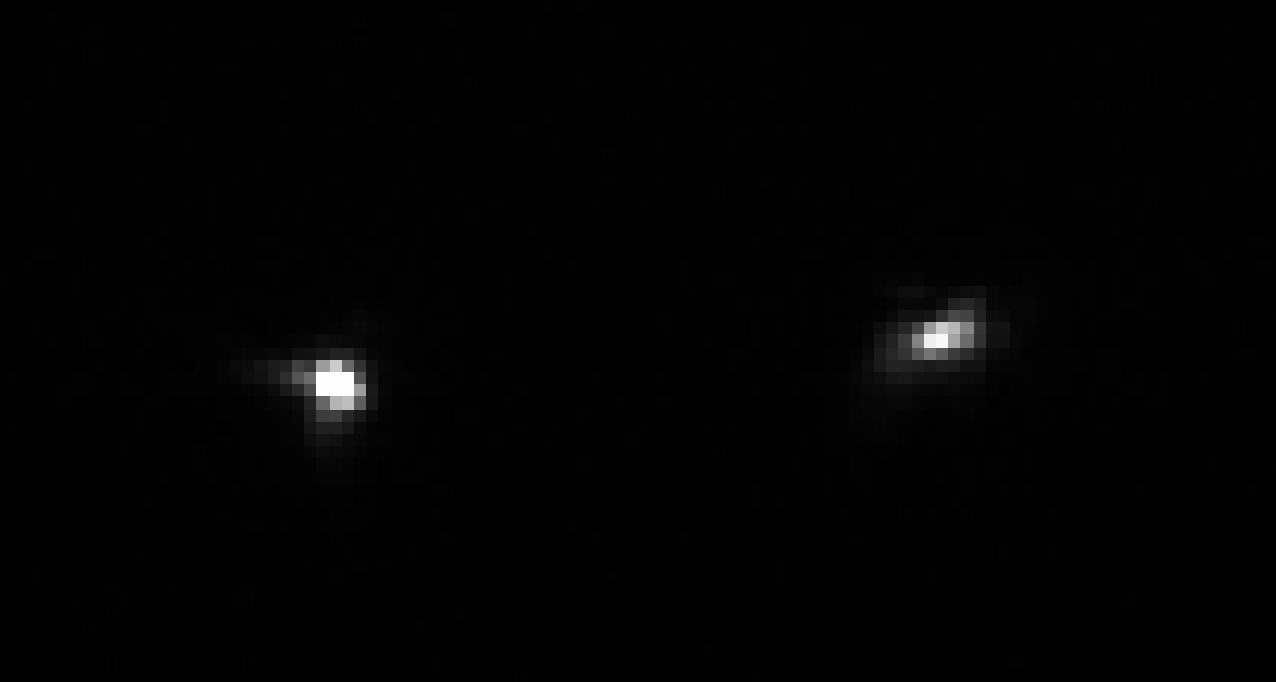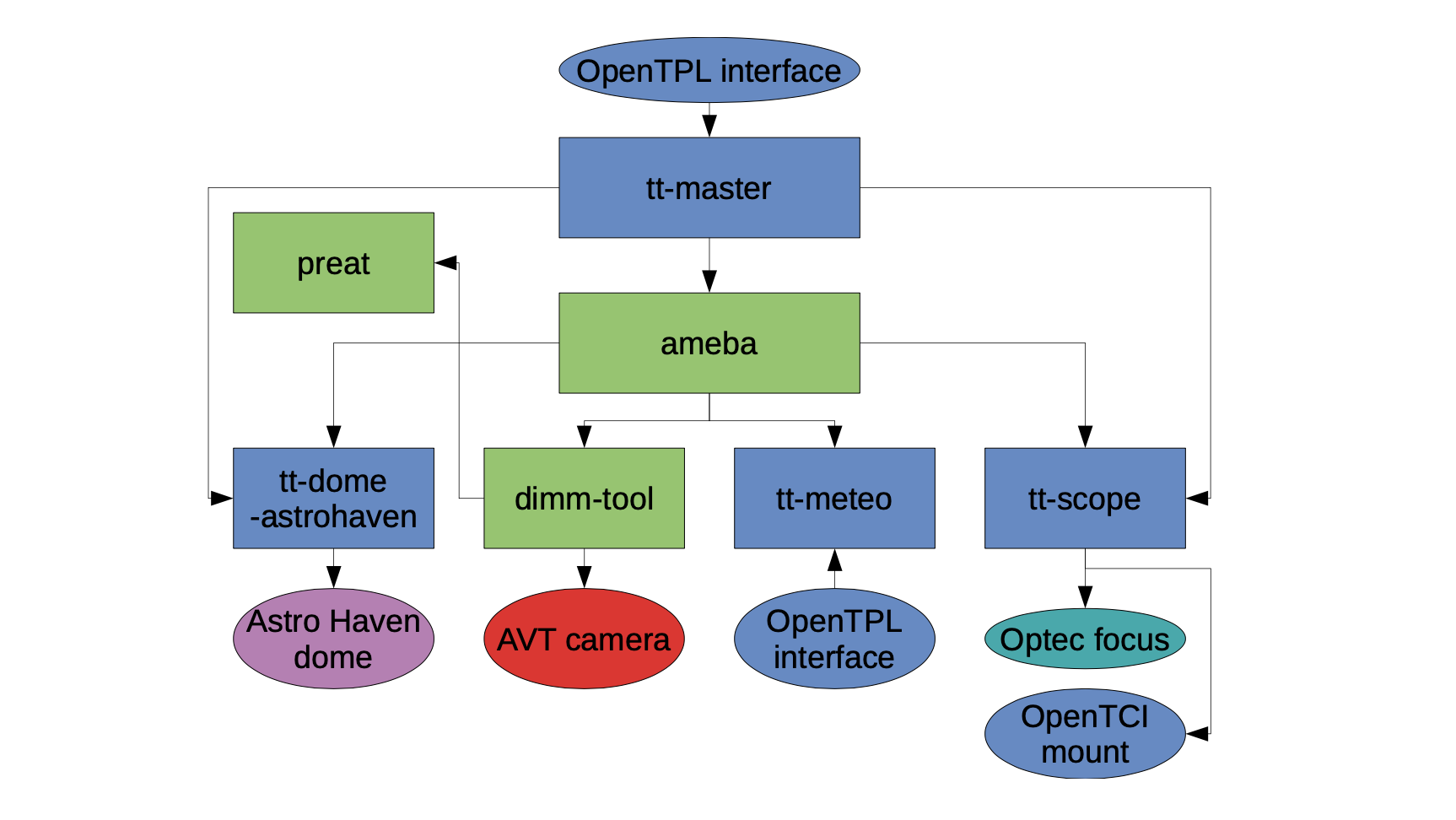DIMM¶
The differential image motion monitor (DIMM) is a standard instrument to measure astronomical “seeing”, which is a metric for the amount of atmospheric turbulence affecting image quality.
To operate the DIMM (start up, monitor and shutdown), please follow DIMM Startup, Shutdown and Monitoring
The DIMM principle is to produce “twin images” of a bright star by a mask with two apertures at the entrance pupil of the telescope. One of the apertures holds a wedge prism that results in the displacement of an image on the sensor, producing a pair of images.

The “twin images” of a star imaged on the DIMM focal plane.¶
The fluctuations of the angular distance between the two spots is proportional to the atmospheric optical turbulence, that in turn, enables a prediction of the expected FWHM in long exposures.
The main control software is divided into several programs. The main services are ameba that is in charge of the observation, synchronizing dome, weather service, mount and camera control, and the preat program that converts the output of the dimm_tool into seeing values.

Structure of the DIMM software¶
Below is a list of some useful DIMM manuals:
Overview of the DIMM software: DIMM General Spec
Configuration files for the DIMM programs, specially ameba and dimm_tool: DIMM Configuration
High-level control of the DIMM software, tt-master program description: tt_master Spec
A detailed description of the preat program and preat output: Preat Description
Information on the different operating modes that might be useful for maintenance and troubleshooting: DIMM software description
Rubin’s confluence page with information of the individual hardware components, history of Rubin’s DIMM, SW installation instructions and other useful links: DIMM Confluence Page
DIMM source code: DIMM Source Code
This procedure was last modified on Feb 24, 2026.